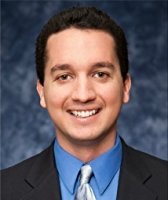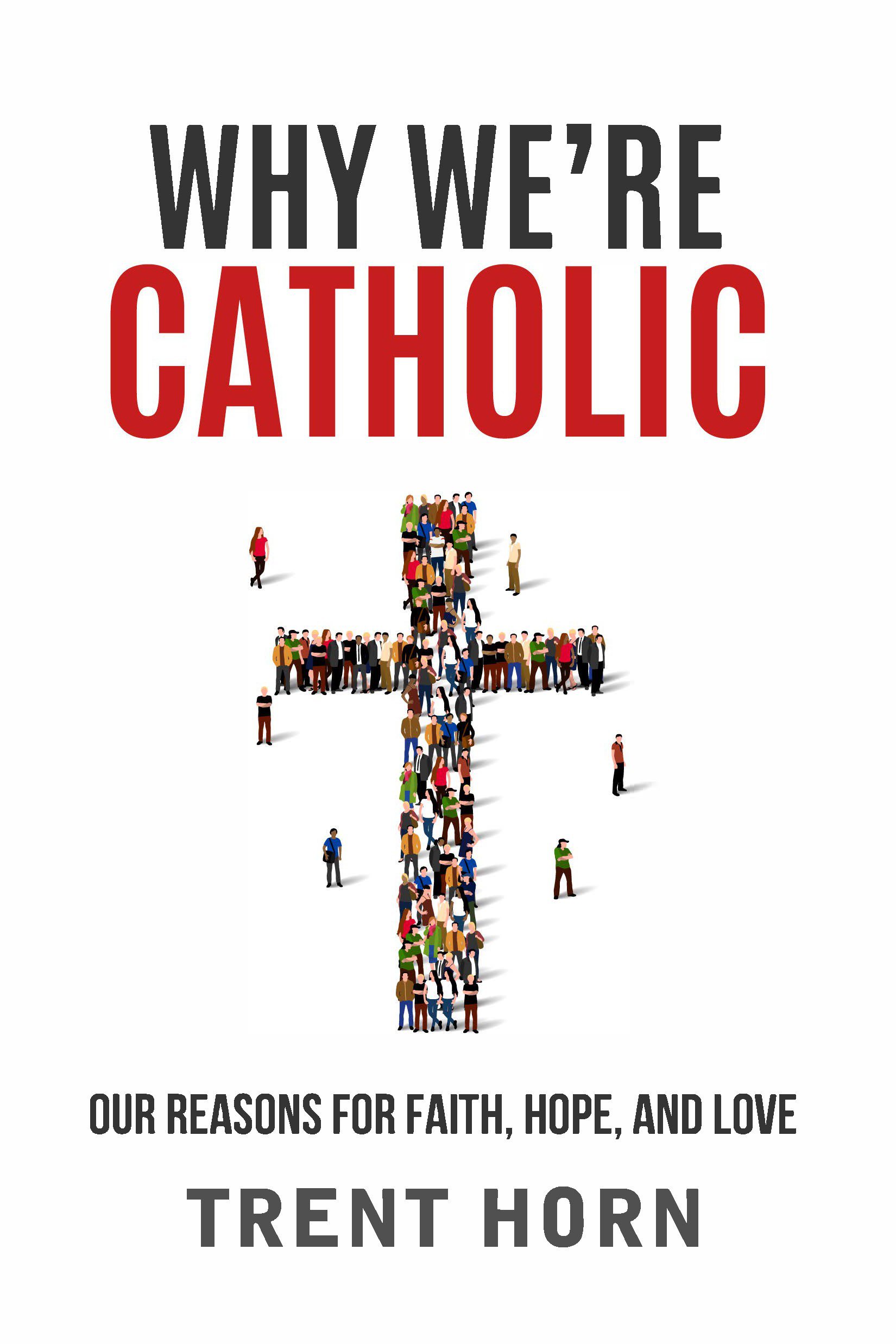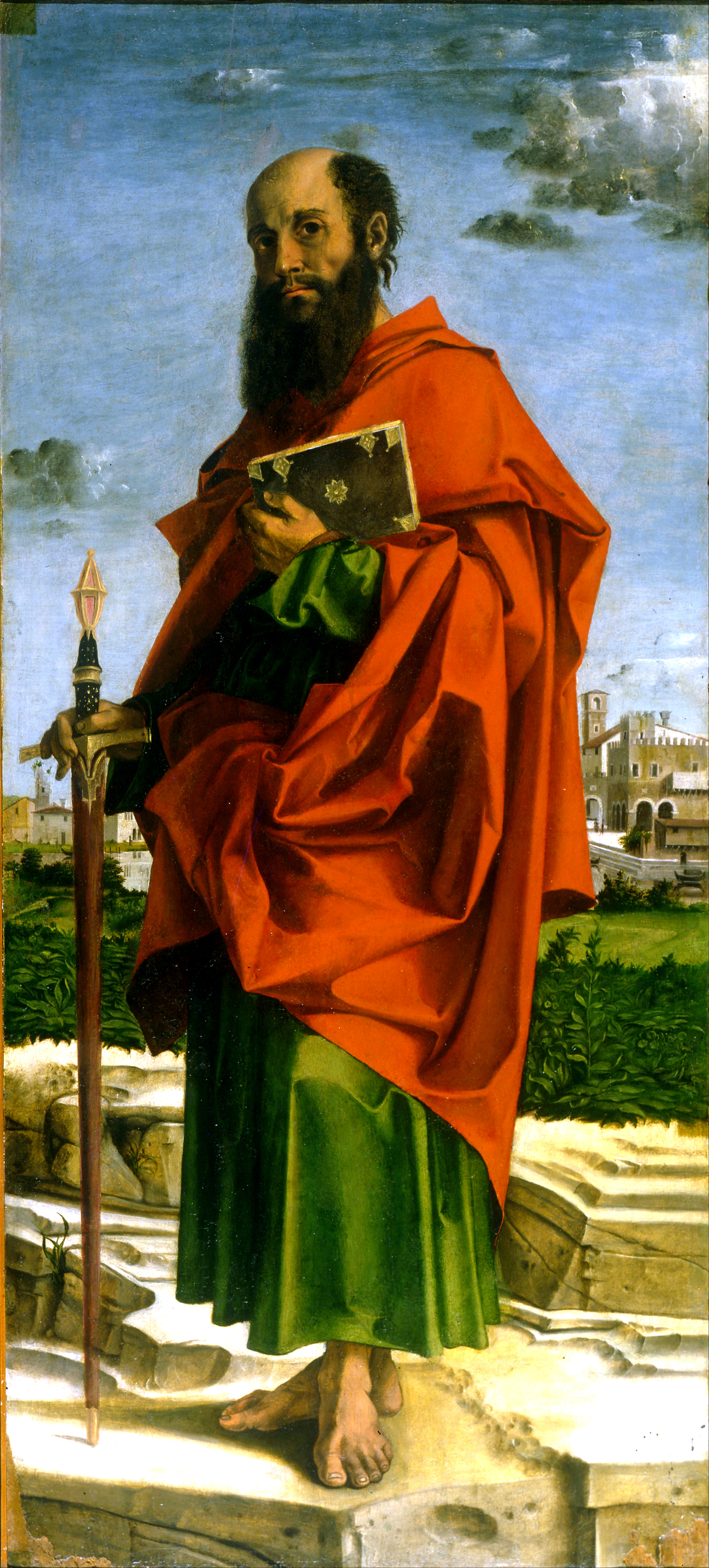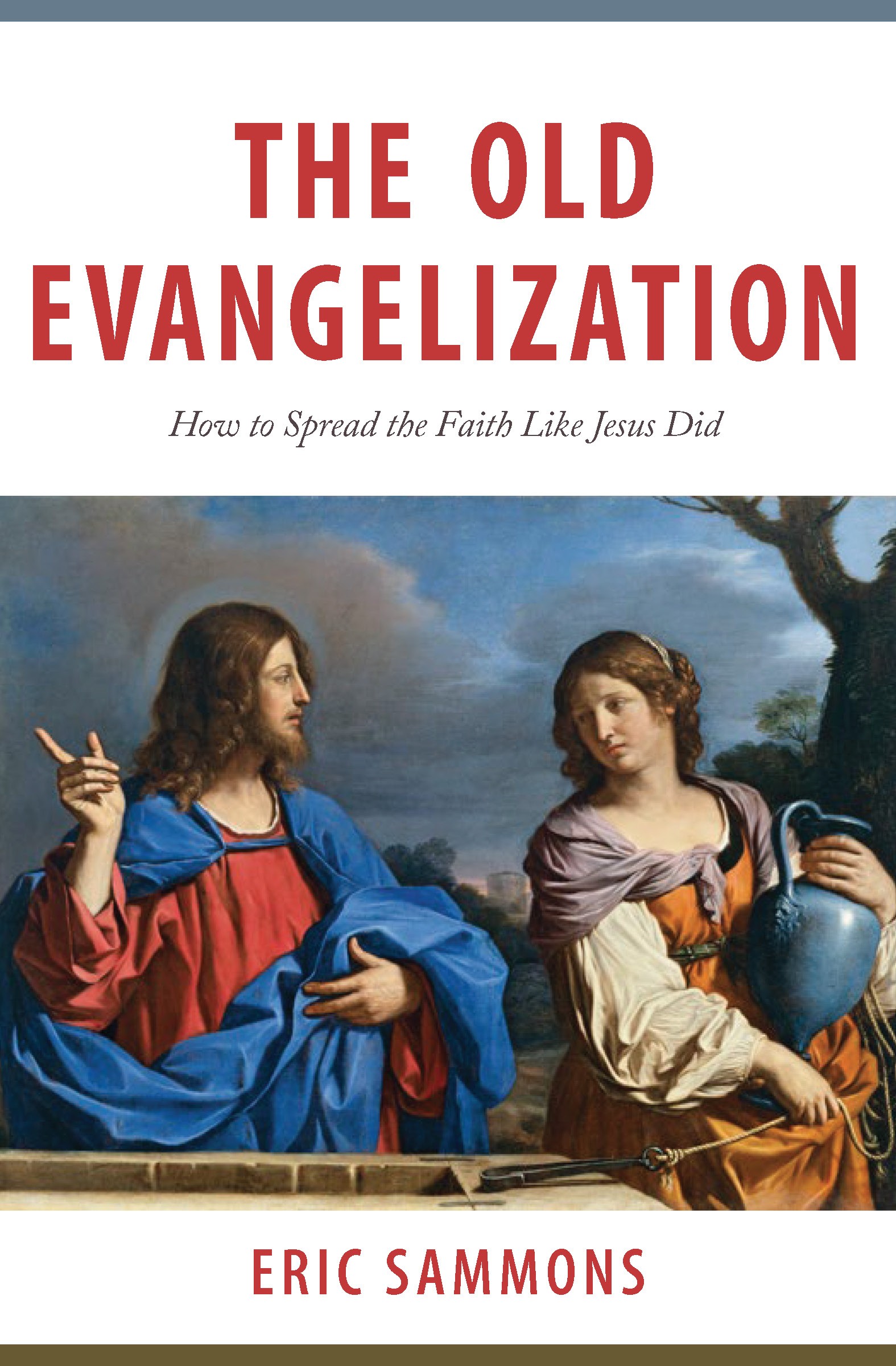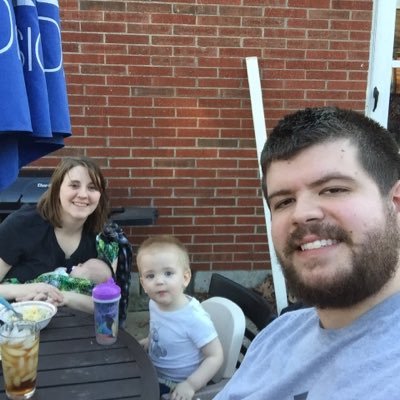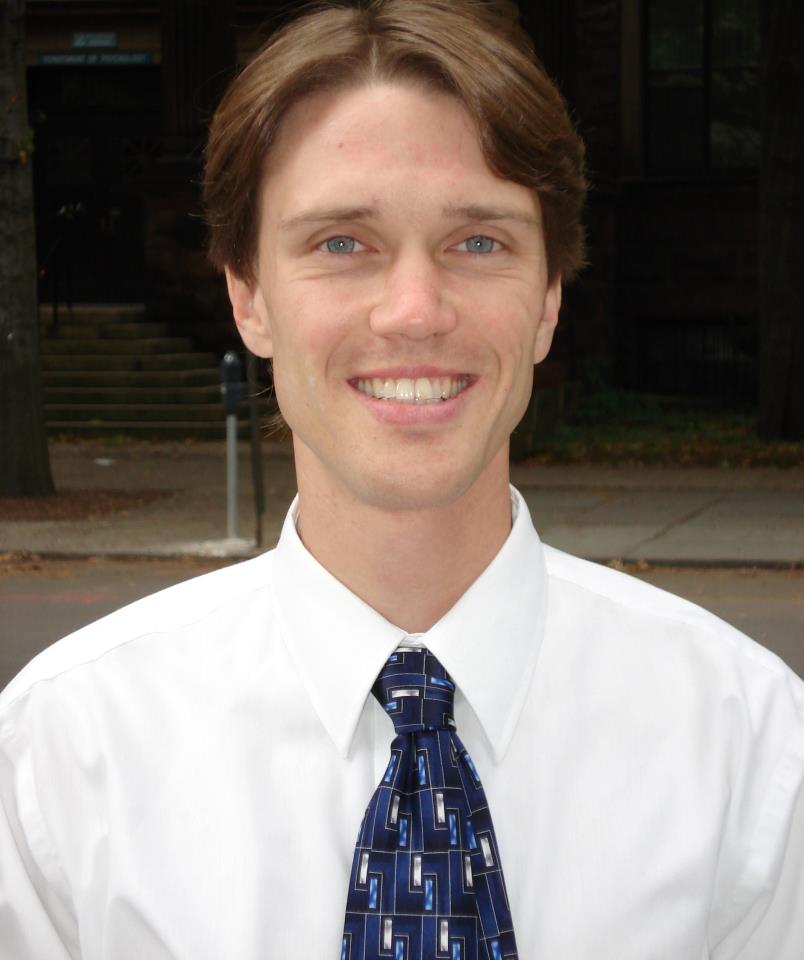
Jennifer Fulwiler is a former atheist who was born and raised with the natural materialist worldview that says, “If you can see it and touch it, then it is real.” Influenced by her atheist father, who told her, “Seek truth and do not believe assumptions,” from early childhood she sought answers to her many questions that eventually brought her to an unexpected destination.

-by Jennifer Fulwiler
“One thing I could never get on the same page with my fellow atheists about was the idea of meaning. The other atheists I knew seemed to feel like life was full of purpose despite the fact that we’re all nothing more than chemical reactions. I could never get there. In fact, I thought that whole line of thinking was unscientific, and more than a little intellectually dishonest. If everything that we call heroism and glory, and all the significance of all great human achievements, can be reduced to some neurons firing in the human brain, then it’s all destined to be extinguished at death. And considering that the entire span of homo sapiens’ existence on earth wouldn’t even amount to a blip on the radar screen of a 5-billion-year-old universe, it seemed silly to pretend like the 60-odd-year life of some random organism on one of trillions of planets was something special. (I was a blast at parties.)
By simply living my life, I felt like I was living a lie. I acknowledged the truth that life was meaningless, and yet I kept acting as if my own life had meaning, as if all the hope and love and joy I’d experienced was something real, something more than a mirage produced by the chemicals in my brain. Suicide had crossed my mind — not because I was depressed in the common sense of the word, simply because it seemed like it was nothing more than speeding up the inevitable. A life multiplied by zero yields the same result, no matter when you do it.
Not knowing what else to do, I followed the well-worn path of people who are trying to run from something that haunts them: I worked too much. I drank too much. I was emotionally fragile. Many of my relationships with other people were toxic. I wrapped myself in a cocoon of distractions, trying to pretend like I didn’t know what I knew.
A Guy Named Joe
A year after I graduated from college, I met a guy at work named Joe. I was so impressed with him but I didn’t think I had much of a chance. He’d grown up poor, raised by a single mother, and had gone on to get degrees from Yale, Columbia, and Stanford. People who knew him said he was one of the smartest people they’d ever met. So when we began dating, I was thrilled. Our life together turned out to be even better than I could have imagined: We traveled the world on whims, ate at the finest restaurants, flew first class, and threw epic parties on the roof of his loft downtown. On top of that, both of our careers were taking off, so our future held only more money and more success.
We were a perfect couple. The only thing we didn’t see the same way was the issue of religion. A few months after we started dating, it came out that Joe not only believed in God, but considered himself a Christian. I did not understand how someone who was perfectly capable of rational thought could believe in fairy tale stories like those of Christianity. Did he believe in Santa Claus too?
It didn’t cause any problems between us, though, since we had the same basic moral code: he didn’t practice this bizarre faith of his in any noticeable way, and, mainly, I did not want to think about it. At all. Whenever the subject of God came up, something deep within me recoiled. Not that I had any problem demolishing silly theist ideas — it had been something of a hobby back in college — but the subject took me too close to that thing I was trying to forget. I had constructed my entire life around not thinking about it, so I never articulated what it was. It had been so buried by the parties and the socializing and the breathless running from place to place that it was no longer a specific concept, just some dark, cold amorphous knowledge I needed to avoid.
Joe and I married in a theater in 2003, reciting vows we wrote ourselves, with me wearing a dark purple dress. The plan was that marriage would be just a stepping stone along the path we were already on. But then I discovered I was pregnant, and everything changed.
Motherhood Turns My Life Upside Down
Motherhood caught me completely off guard. I’d grown up as an only child in a culture where nobody I knew had more than two kids living at home. I never had a friend whose mom had a baby during the time of our friendship. And considering that I’d never wanted kids and had some minor medical issues that made me think I probably couldn’t have them anyway, I was utterly unprepared for motherhood. The physical, mental, and emotional changes I went through after the birth of my son were a hard blow, like a punch to the head that comes out of the blue, and it left me reeling.
This cataclysmic event unearthed all those old thoughts about meaninglessness, and this time there was no re-burying them. Now that I had a child, it felt like my life had more meaning than ever. The dark-haired, blue-eyed baby felt so valuable; my own life was flooded with hope and joy at his presence. But with none of the usual distractions in place, the facts of the matter now descended upon me: There was nothing transcendent about my son’s life, my life, or any of the love I felt for him. He was destined for the same fate as the rest of us, to have his entire existence erased upon his inevitable death.
For weeks, I hardly got out of bed. Some combination of severe sleep deprivation and more severe depression left me almost catatonic. But then one morning, as I looked at the baby in the pre-dawn light that filtered in through the window, I felt something new within me. It was something that was not despair, some unfamiliar yet welcome feeling. I peeled back the layers to find that it was doubt: Doubt of my purely materialist worldview, doubt of the truth I had believed since childhood that there is nothing transcendent about the human life.
I considered that in almost every single time and place throughout human history, people have believed in some kind of spiritual realm. Almost every human society we know of has shared the belief that there is more to life than meets the eye, that what transpires here in the material world somehow reverberates into the eternal. Previously I had assumed that the vast majority of the billions of people who had ever lived were all simply ignorant; now I wondered if maybe I was the one who was missing something.
My First Christian Book
A few months later, I stumbled across a Christian book. I’d never been in the Religion section of a bookstore, let alone read anything about Christianity. I’d only picked up this book because the author claimed to be a former atheist, and I was curious to see what level of fraud he was. After flipping through the first few pages, I was surprised to find that I believed that he had been an atheist. I read a few more pages, and found his writing to be clear and basically reasonable. Obviously he’d come to the wrong conclusions, but I could respect the fact that he at least attempted to reason his way into his current belief system, rather than basing it on some emotional experience. I found that I couldn’t put the book down, and ended up buying it (loudly noting to the cashier that it was a gift for a friend).
A quick internet search showed that the book was widely scorned by atheists, and some of their counter-points to the author’s arguments were good. But it was simply not true to say that there was nothing compelling about it. For example, the book pointed out that thousands of Jewish people abandoned the sacred practices that had sustained them through centuries, through all types of persecution, in the years after the death of Jesus of Nazareth. Almost all of Jesus’ original followers went to their death rather than recant their statements that they’d seen Him rise from the dead. Christianity spread like wildfire in the early centuries, despite the fact that becoming a Christian often meant persecution or even death.
I had never seen Jesus as anything other than a silly fairy tale figure whom people called upon to give a divine thumbs-up to self-serving beliefs, but now I was intrigued by the man as a historical figure. Something happened in first-century Palestine, something so big that it still sends shockwaves down to the present day. And it all centered around the figure of Jesus Christ. As Joe once pointed out when I asked him why he considered himself a Christian, Christianity is the only one of all the major world religions to be founded by a guy who claimed to be God. That’s an easy claim to disprove if it’s not true.
One afternoon, shortly after I finished the book, I was caught off guard by a thought: What if it’s true?
What if there were a God? What if He chose to enter history as a human being? It was the most shattering thought that had ever crossed my mind. Never once in my life, not even as a child, had I considered that a personal God might exist, or that there could be even a shred of truth to any of Christianity’s supernatural claims. I quickly came to my senses and admonished myself to stop this silliness. Part of me wondered if I was losing my mind — what else could explain such a thought?
I wanted to forget all about this embarrassing little incident … but I couldn’t. Some strange feeling had risen up within me, that wouldn’t let me walk away from this subject. I figured that it must be simple curiosity. All I needed to do was read a bit more about Christianity, then when I was overwhelmed with the obvious flaws in its theology, I could move on.
Plunging Into the Deep End of the Pool
I bought another Christian book, this one called Mere Christianity by C.S. Lewis. Unfortunately, this was not going to help me extricate myself from this religion.
Lewis was reasonable and obviously intelligent. His book was one of the most clear, well-written things I’d read in a long time. I was particularly captivated by his case for the Natural Law, in which he proposed that God is the source of all that we call “good,” which is why people in all times and places have had the same basic ideas about what is good and what is bad. My curiosity piqued, I then read excerpts online from the great Christian thinkers like Augustine and Aquinas. I began to think that this religion was not opposed to reason at all — in fact, some of the most intelligent, reasonable people in history were Christians.
I finally caved in and bought a Bible, the first I’d ever owned. Not knowing how else to approach it, I started reading at page one. I was alternately baffled and horrified by what I read in the first few hundred pages. Joe encouraged me to read the second part of the book, called the New Testament, since that is where Jesus comes into the picture. That didn’t help. There was no clear call to action, like, “If you like what you’ve read here and would like to become a Christian, here’s what you do.” I had no idea how to interpret most of the passages, and it seemed like no one else did either. When I would search online for whether or not the Bible said abortion, euthanasia, human cloning, etc. were right or wrong, I encountered as many different answers as there were people, with each person citing Bible verses to back up his or her personal view. Similarly, I had no idea which church to go to if I wanted to ask someone questions in person: In my community there was everything from Church of Christ to Jehovah’s Witnesses to conservative Baptist to liberal Anglican churches, each one claiming to be based on the Bible, yet they all taught drastically different things about what constitutes sin.
This was a huge problem. If God is all that is good, then to define what is bad — in other words, sin — is to define the very boundaries of God Himself. It was nonsensical to suggest that His religion would be confused on that issue.
I’d found what I was looking for: the flaw that showed that Christianity didn’t make sense. It was time to move on.
What’s This with the Catholic Intellectuals?
Shortly after I came to this realization, someone I’d encountered online made a crazy suggestion: he said that I’d been approaching the whole thing from a very modern and distinctly American perspective, that the traditional understanding of Christianity is totally different. He suggested that Jesus founded just one Church before He left the earth, and that He instilled it with supernatural power so that it would accurately articulate the truth about what is good — and therefore about what is God — for all times and places. As if that weren’t crazy enough, he was talking about the Catholic Church!
Joe and I both balked. Joe said that Catholicism wasn’t real Christianity, and I knew that the Church was an archaic, oppressive, sexist institution. Besides, this idea of supernaturally-empowered people was just silly.
However, I did notice something: almost all the people who had impressed me with their ability to defend their faith through reason alone, both famous authors and people online, were Catholic. In fact, the more I paid attention, the more I saw that the Catholic intellectual tradition was one of the greatest in the world. I began reading books by Catholic authors; not that I was really interested in Catholicism, I told myself — I was just looking for something good to read. But I couldn’t help but admit that these people seemed to possess an understanding of the world and the human experience that I’d never encountered before. They had the same solid grasp on science and the material world as the atheists, but also possessed a knowledge of the movements of the human soul that resonated as true down to the core of my being.
I wasn’t sure what to make of all this Catholic stuff, and still vehemently disagreed with the Church on some of its crazier ideas, like its opposition to abortion and contraception. But I had to admit that the more I read about Catholic theology, the more sane it seemed.
I also began to think that it was more likely than not that God does exist, and that if the Christians weren’t entirely right, they were at least close with their understanding of Him. But why, then, had I had no experience of Him? Not that this was a requirement for me to believe, but it just seemed like if there were a God out there and He cared about me, I would sense His presence in some way.
I’d been under a lot of stress between having a new baby and some money problems we were experiencing, plus I’d developed a severe pain in my leg that was almost debilitating. All along I’d prided myself on saying that I would never convert based on emotional experience, that I only needed facts, not feelings. But now it was getting old. It was hurtful to think that God might be out there but just withholding comfort from me. I was tired of pressing forward in this pursuit with no sense of His presence. I could be miserable and feel alone in the universe as an agnostic — why bother with this religion business if that didn’t change anything?
Will It Work? An Experiment
My feelings of frustration and resentment toward God reached a head. And then, just at the right time, I happened to come across a quote from C.S. Lewis in which he pointed out:
[God] shows much more of Himself to some people than to others — not because He has favourites, but because it is impossible for Him to show Himself to a man whose whole mind and character are in the wrong condition. Just as sunlight, though it has no favourites, cannot be reflected in a dusty mirror as clearly as in a clean one.
Of course. I’d been walking around talking trash, watching TV shows that portrayed all types of nastiness, indulging in selfish behavior … and yet wondering why I couldn’t feel the presence of the source of all goodness. I realized that, if I were serious about figuring out if God exists or not, it could not be an entirely intellectual exercise. I had to be willing to change.
I wasn’t sure if I was ready to sign up for that for the long haul, but I decided to give it a shot: I committed to go a month living according to the Catholic moral code. I bought a copy of the Catechism of the Catholic Church, a summary of the Church’s teachings, and studied it carefully, living my life according to what it taught, even in the cases where I wasn’t sure the Church was right.
My goal with the experiment had been to discover the presence of God; instead, I discovered myself — the real me. I had thought that cynicism, judgmentalness, and irritability were just parts of who I was, but I realized that there was a purer, better version of me buried underneath all that filth — what the Church would call sins — that I had never before encountered.
I found that the rules of the Church, that I had once perceived to be a set of confining laws, were rules of love; they defined the boundaries between what is love and what is not. It had changed me, my life, and my marriage for the better. I may not have experienced God, but by following the teachings of the Church that was supposedly founded by Him, I had experienced real love.
Following the teachings about contraception had been moot since I was pregnant with our second child, but I did read up on it during my experiment of following the Church’s teachings. And, to my great surprise, I discovered that the Church had incredibly reasonable defenses of its points. I asked Joe to take a look at this stuff in case I was missing something, and, to his own amazement, he also found the Church’s arguments to be airtight. He had been doing his own investigation into Catholicism, and this was the final issue that had been troubling him too. We looked at each other, and for the first time dared to ask: Are we going to become Catholic?!
Medical and Moral Complications
Only two weeks after we had that thought, that pain in my leg got so bad that I ended up in the ER. I was seven months pregnant with our second child, and it turned out that I had a deep vein thrombosis, a life-threatening blood clot in a major vein. If the clot had broken free, I likely would have died.
After some testing, the doctors delivered worse news: I have a genetic clotting disorder that means that my blood clots easily — and I inherited it from both parents, which makes it worse. On top of that, it is exacerbated by pregnancy, which makes pregnancy dangerous for me.
I had a lot of time to mull over this turn of events: the clot couldn’t be treated during pregnancy, and the pain was so severe that I could no longer walk on my own. So I spent most of my days lying in bed, wondering what to do now.
To treat the clot postpartum, the doctors wanted to prescribe an FDA Category X drug to treat the clot — it’s so dangerous for pregnancy that women often choose to be sterilized before they take it. They told me that my clotting disorder means I should not have any more children, because of the risk that pregnancy poses to my health. I didn’t want them to think I was religious for fear of what they’d think of me, but when I hinted at the question of using Natural Family Planning (a method for spacing children that the Church deems morally acceptable), they laughed. Someone with my condition had to use contraception, they said. There was no choice.
Fatigued by the constant pain, overwhelmed by medical bills that were piling up by the thousands, I began to slide back away from this religion, tumbling down a slope that ended back in atheism. I hadn’t minded changing in the sense of not using the F-word so much, but this was a whole different ball game. To stick with the Church now would be to lose my life as I knew it, and to set out down an unfamiliar, frightening path.
Not knowing what else to do, I went back to the basics of the way I’d been taught to work through problems since childhood. My dad, my parent from whom I got my religious views (or lack thereof), had not raised me to be an atheist as much as he’d raised me to seek truth fearlessly. “Never believe something because it’s convenient or it makes you feel good,” he’d always say. “Ask yourself: ‘Is this true?’”
And so I set everything else aside, and clung to the simple question: What is true?
I quickly realized then that this was not in question, and hadn’t been for a while. For weeks now, I had known on an intellectual level that I believed what the Church taught. What stalled me had not been a hesitation of whether or not it was true; it had been a hesitation of not wanting to sacrifice too much.
I had no idea how things would work out. I thought there was a fair chance that this step would lead us to financial ruin, and may even take a serious toll on my health. But I decided, for the first time in a long time, to choose what was true instead of what was comfortable. Joe and I signed up to begin the formation process at our parish church. And, in the first statement of faith I’d ever made, I told my doctors that I would not use contraception, because I was Catholic.
God Helps Us Home
After that moment, a bunch of fortuitous events occurred that smoothed the way for us to become Catholic. A series of windfalls gave us the money we needed to manage our medical bills. After they got over their initial shock at encountering someone who wouldn’t contracept, my doctors came up with creative solutions to keep me healthy. Even after a surprise positive pregnancy test came at the worst possible time, just a few weeks after I’d healed from the blood clot, a bunch of startling coincidences played out to help us stay afloat during that difficult time.
The next spring, three days before Joe and I would be received into the Church, it was time for my first confession. As I approached the confessional, I had no hesitation. I had an intellectual understanding that God is the source of goodness, and that therefore it’s important that we take great care to repent when we have done something bad. But I’d already privately confessed all these sins in my head, so I figured that telling them to the priest, who was simply standing in for Jesus, would be redundant — after all, Jesus had already heard all this stuff.
But as soon as I heard the words coming from my mouth, everything changed. To hear all of these selfish, cowardly, hateful acts articulated with real words, for another human being to hear, was more powerful than I could have ever imagined. Tears began to flow, and, as I continued recounting every unloving thing I’d ever done, I shook and sobbed. Never could I have imagined the impact it would have on me to hear of my own sins, spoken out loud; but never could I have imagined how much it would impact me to hear the words, spoken by the priest on behalf of God, that I was forgiven. I walked away from the confessional in a daze, and slid into a pew in the silent church. I knew that my life had just changed, never to be the same again.
Later that night, around midnight, I stepped out on the back porch. When I was younger I used to avoid going outside at night when it was quiet and still, because it would trigger memories of all those ominous thoughts about meaninglessness that I was trying to forget. The darkness outside was too familiar, as if it had all spilled out from somewhere within me. But as I stood there that night after my first confession, I realized that all that was gone. The darkness within me was simply not there anymore. In its place was peace, and an unmistakable feeling of love. For the first time, I felt the presence of God.”
Love,
Matthew
